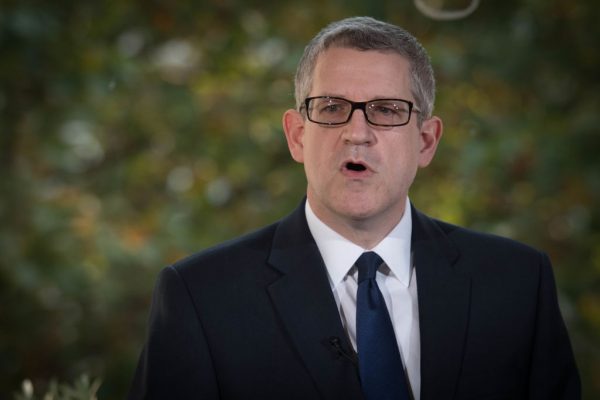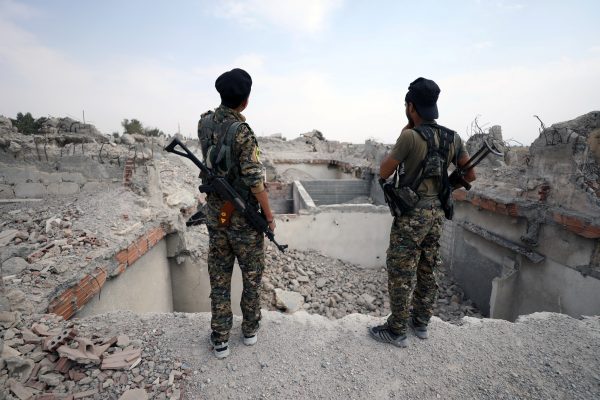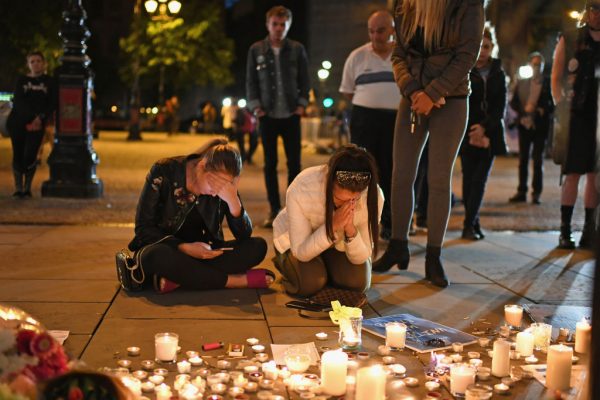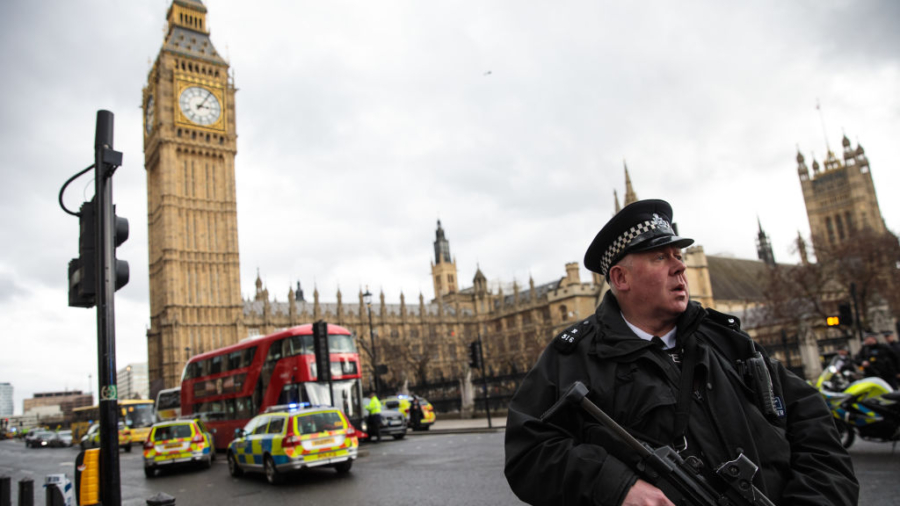The head of Britain’s Security Service has warned the nation is facing a “dramatic upshift” in Islamist terrorism, and that further attacks are inevitable.
In a rare speech on Tuesday Oct. 18 the head of MI5, Andrew Parker, told journalists that the “intense” threat was the worse he had known in his 34-year career.
Parker warned that driving ISIS out of Syria and Iraq wouldn’t reduce the current Islamist terror threat to the U.K.

“That threat is multi-dimensional, evolving rapidly, and operating at a scale and pace we’ve not seen before,” he said.
Thirty-six people have been killed in Islamist terrorist attacks in the U.K. this year, including a suicide bomb at a concert in Manchester, northwest England, that killed 22 people on May 22.
Parker said that 20 plots have been thwarted in the last four years, including seven in the last seven months.

Security experts in the past have said that such MI5 data probably refers to large-scale incidents with multiple fatalities, such as the Bataclan attack in Paris.
The speech, recorded by various news outlets including the BBC, came on the day that ISIS was ousted from a key stronghold in Syria, underlining the difficulties of tackling the Islamist threat which has spread throughout western Europe and propagated in part online.
“[ISIS] itself is under military pressure and is rapidly losing ground in its heartland in Syria and Iraq. So much so that it’s now advising would-be fighters to choose other countries … At the same time the Daesh brand has taken root in some other countries where areas of low governance give it space to grow,” said Parker, according to the Guardian.
MI5 has previously said that around 850 people have travelled from the UK to Syria to join ISIS. Parker said that 130 are known to have been killed in the conflict there and that he expected many would be now too afraid to return to the U.K., where they face arrest and possible conviction.
Three thousand people are being monitored by security services with 20,000 on a watch-list. There are 500 active investigations.

British security services faced criticism earlier this year when it emerged that terror attacks had been carried out by individuals previously known to security services, including one who had publicly paraded an ISIS flag.
Parker cautioned against expecting total protection against attacks. “That just isn’t achievable,” he said.
“Attacks will occur sometimes because this is a free society, a liberal democracy, and we do not monitor everybody all the time and I wouldn’t wish to live in a country that was like that,” he said according to the Telegraph.
The sheer breadth of different methods now adopted by Islamist terrorist created a huge challenge for security services, said Parker.
“The threat is more diverse than I’ve ever known. Plots developed here in the U.K., but plots directed from overseas as well. Plots online. Complex scheming and also crude stabbings; lengthy planning but also spontaneous attacks. Extremists of all ages, gender and backgrounds, united only by the toxic ideology of violent victory that drives them.”
“Attacks can sometimes accelerate from inception through planning to action in just a handful of days. This pace, together with the way extremists can exploit safe spaces online can make threats harder to detect and give us a smaller window to intervene.”
ISIS is known for its slick use of social media and online technology to snare new recruits, spread its messages, and to provide instructions for terrorist attacks.
Technology itself is not the enemy, said Parker, but said that tech companies had to rise to the challenge and responsibilities lying at the “dark edges” of their products.
“No company wants to provide terrorists with explosive precursors. Social media platforms don’t want to host bomb-making videos. And communications providers do not want to provide the means for terrorists’ planning beyond the sight of MI5.”

